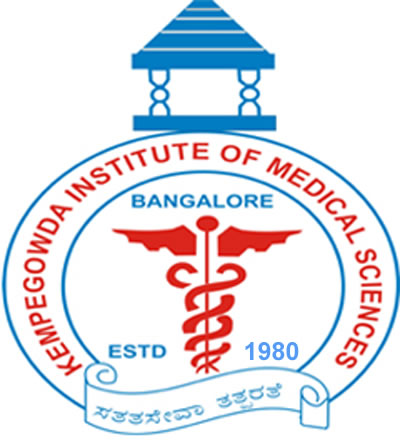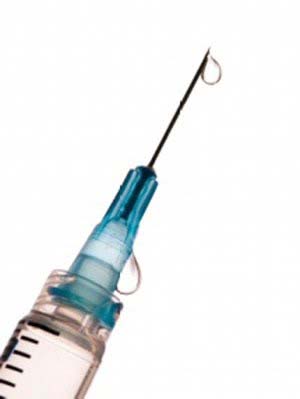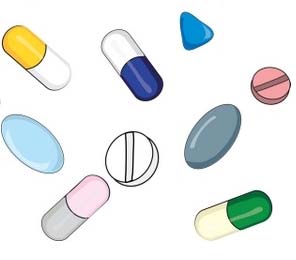Microsoft word - newsletter-vol-2-issue-9-header page




VOLUME 2 ISSUE 9 SEPTEMBER 2014
Regional medical practice of concomitant medication
CDSCO - REGULATORY MATTERS
1. CONSIDERATION OF ETHNICITY FOR
APPROVAL OF NEW DRUGS
Severity distribution of eligible subjects.
Similarity of dose and dosage regimen.
Based on the recommendation of the expert committee constituted by the MINISTRY OF HEALTH AND FAMILY
Clinical end-point has to be acceptable to the region
WELFARE, it was decided that the following properties of
in assessing efficacy.
a compound which would make it more likely to be sensitive to ethnic factors shall be taken into 2. PENALTIES FOR SPURIOUS OR
consideration during evaluation of new drug
SUBSTANDARD QUALITY DRUGS
The penalty for manufacture of spurious or adulterated
Non-linear pharmacokinetics.
drugs has been enhanced to an imprisonment for a term
A steep dose-response curve (a small change in dose
which shall not be less than 10 years, but which may
results in a large change in effect) for both efficacy
extend to imprisonment for life and shall also be liable to
and safety in the range of the recommended dosage
fine which shall not be less than Rs. 10 lakhs or 3 times the
and dose regimen.
value of the drug confiscated, whichever is more. In certain cases, offences have been made cognizable and
A narrow therapeutic dose range.
non-bailable. It also provides a tool of compounding of
Highly metabolized, especially through a single offences for dealing with certain minor offences.
pathway, thereby increasing the potential for drug-drug interaction.
The major categorization of not of standard quality drugs could be:
Metabolism of enzymes known to show genetic
CATEGORY A—SPURIOUS & ADULTERATED DRUGS
Administration as a prodrug, with the potential for
SPURIOUS OR IMITATION DRUG PRODUCTS are drug
ethnically variable enzymatic conversion.
formulations manufactured concealing the true identity of the product and made to resemble another drug,
High inter-subject variation in bioavailability.
especially some popular brand, to deceive the buyer and
Low-bioavailability, thus more susceptible to dietary
cash on the popularity of the original product. The
absorption effects.
product may or may not contain the active ingredients.
High likelihood of use in a setting of multiple co-
ADULTERATED DRUGS are those drugs which are found
to contain an adulterant/substituted product or contaminated with filth rendering it injurious to health.
High likelihood of inappropriate use, e.g. analgesics
and tranquilizers.
CATEGORY B—GROSSLY SUB-STANDARD DRUGS
It has also been decided that the following factors may
Drugs manufactured by licensed manufacturers and
be taken into consideration in deciding whether the reported to have defects of serious nature to affect the
available data could be ethnically sensitive or insensitive:
quality of the drug. Such defects may arise out of gross
negligence or non-conformance to GMPs during
Definition of the disease and diagnosis of the patient.
manufacture. These defects may broadly be as under:
Choice of control group.
Active ingredient contents below 70% for
Method of assessment of safety—similarity of medical
thermolabile products and below 5% of permitted
practice to the country of origin.
limits for thermostable products.
Duration of trial.
Tablets/Capsules failing in disintegration tests
wherever prescribed.

VOLUME 2 ISSUE 9 SEPTEMBER 2014
Liquid preparations showing presence of fungus.
conduct of clinical trials of new drugs in India should invariably provide the information on (i) assessment of
Parental preparations failing in sterility, risk versus benefit to the patients, (ii) innovation vis-a-vis
pyrogen/endotoxin test or undue toxicity.
existing therapeutic option and (iii) unmet medical need in the country.
Vaccines failing in potency, sterility, toxicity or
moisture content.
All the sponsors / CROs / medical institutions and other stakeholders involved in the conduct of clinical trials in
Presence of any adulterant which renders the the country are hereby directed to adhere to the above
product injurious to health.
requirement of inclusion of the three parameters in their clinical trial applications with immediate effect.
CATEGORY C—MINOR DEFECTS
Drugs manufactured by the licensed manufacturers
US FDA — NEW DRUG APPROVALS
found not of standard quality because of defects arising
out of minor variations in quality. Such defects may arise because of inadequate pre-formulation development DULAGLUTIDE is a new long-acting GLP-1 receptor
studies, lack of in process controls exercised by the agonist which increases intracellular cAMP in beta cells
manufacturer or unsuitable conditions under which drugs
leading to glucose-dependent insulin release and also
are stored or transported. Examples of some such the
decreases glucagon secretion and slows gastric emptying.
DULAGLUTIDE is specifically indicated as an adjunct to
Broken or chipped tablets.
diet and exercise to improve glycemic control in adults with type 2 diabetes mellitus.
Presence of spot, discolouration or uneven coating.
Formulation: Solution for SC injection at a recommended
Cracking of emulsions.
initiating dose of 0.75 mg once weekly at any time of day, with or without food, to be injected in the abdomen,
Clear liquid preparations showing sedimentation.
thigh, or upper arm. The dose may be increased to 1.5 mg
once weekly for additional glycemic control.
Change in colour of the formulation.
Adverse events: Nausea, diarrhea, vomiting, abdominal
Slight variation in net content.
pain and decreased appetite.
Formulations failing in weight variation.
US FDA approval: September 2014.
Formulations failing to respond to the colour test.
5. NALTREXONE AND BUPROPION—FDC
Isolated cases of presences of foreign matter.
NALTREXONE is an opioid antagonist and BUPROPION
Labelling error including nomenclature mistake, Rx,
is an inhibitor of neuronal reuptake of dopamine and
NRx, XRx, Red Line, Schedule H, Caution, Colour, etc.
The NALTREXONE+BUPROPION FDC is specifically
CLINICAL TRIALS OF NEW DRUGS
indicated as an adjunct to a reduced-calorie diet and
The clinical trials on new drugs are regulated under the
increased physical activity for chronic weight
provisions of DRUGS & COSMETICS RULES 1945 as management in adults with an initial body mass index amended form time to time. The detailed requirements
(BMI) of 30 kg/m2 or greater (obese) or 27 kg/m2 or
and guidelines for undertaking clinical trials are specified
greater (overweight) in the presence of at least one
under Rule 122DAA, Rule 122DAB, Rule 122DAC, Rule
weight-related comorbidity.
122DD, Rule 122E and Schedule Y of the said rules and
Formulation: Extended release tablet orally, twice daily
other relevant provisions.
dosing. The drug should be discontinued if there is no loss
It has been decided that all the applications for the of baseline body weight by >5% after 12 weeks.

VOLUME 2 ISSUE 9 SEPTEMBER 2014
Adverse events: Nausea, constipation, headache, EMA (CHMP) approval: September 2014. vomiting, dizziness, insomnia, dry mouth, diarrhea and potential to cause suicidal thoughts and behaviors and
8. SOFOSBUVIR AND LEDIPASVIR—FDC
neuropsychiatric reactions.
LEDIPASVIR / SOFOSBUVIR is an FDC of two directly
US FDA approval: September 2014.
acting antivirals. The active metabolite of SOFOSBUVIR is a pangenotypic inhibitor of the hepatitis C virus (HCV)
NS5B RNA polymerase, while LEDIPASVIR targets the NS5A protein of the virus.
NALOXEGOL is a peripherally acting µ-opioid receptor antagonist which decreases the spasmogenic action of
It has been approved by Committee for Medicinal
opioids on the gastrointestinal tract. It is specifically Products for Human Use (CHMP) for chronic hepatitis C indicated for the treatment of opioid-induced in adults. The benefits of the FDC with or without constipation in adults with chronic non-cancer pain.
ribavirin are very high efficacy against genotypes 1, 3 and 4, including patients post-transplant and/or with
Formulation: Tablets of 25 mg for once daily
compensated cirrhosis.
administration in the morning, on an empty stomach at least 1 hour prior to the first meal of the day or 2 hours
Formulation: Film coated tablets 400/90 mg, intended
after the meal. Consumption of grapefruit or grapefruit
for oral administration.
juice is to be avoided.
Adverse events: Fatigue and headache.
Adverse events: Abdominal pain, diarrhea, nausea, flatulence, vomiting and headache.
EMA (CHMP) approval: September 2014.
US FDA approval: September 2014.
9. DARUNAVIR AND COBICISTAT—FDC
DARUNAVIR is an HIV-1 protease inhibitor antiretroviral
EMA — NEW DRUG APPROVALS
drug and COBICISTAT is a pharmacokinetic enhancer.
This combination provides sustainable virological suppression if given as part of combination with other
NINTEDANIB is a tyrosine kinase inhibitor anti-neoplastic
antiretroviral medicinal products for treatment of HIV-1
agent blocking vascular endothelial growth factor infection. receptor (VEGFR-1 and 3), platelet derived growth factor receptor (PDGFR-
The FDC is approved in combination with other
α and ß) and fibroblast growth factor
receptor (FGFR-1 and 3) kinase activity, crucial for the
antiretroviral drugs for treatment of HIV-1 infection in
proliferation and survival of endothelial and perivascular
adults aged 18 years or older.
cells, eventually inhibiting tumor angiogenesis.
Formulation: Film coated tablets 800/150 mg, intended
It is indicated in combination with docetaxel for the for oral administration. treatment of adult patients with locally advanced, Adverse events: Diarrhea, nausea, and rash.
metastatic or locally recurrent non small cell lung cancer (NSCLC) after first line chemotherapy.
EMA (CHMP) approval: September 2014.
Formulation: Soft capsules of 100 and 150 mg, intended
for oral administration.
Adverse events: Neutropenia (including febrile
neutropenia), decreased appetite, electrolyte imbalance,
peripheral neuropathy, bleeding, diarrhea, vomiting,
nausea, mucositis (including stomatitis), rash and increase
in alanine aminotransferase, aspartase aminotransferase
and alkaline phosphatyase.
Source: http://kimsbangalore.edu.in/documents/2014/Newsletter-Vol-2-Issue-9.pdf
Journal of the American College of Cardiology Vol. 58, No. 19, 2011 © 2011 by the American College of Cardiology Foundation ISSN 0735-1097/$36.00 Published by Elsevier Inc. Heart Rhythm Disorders Cardiovascular Outcomes in theAFFIRM Trial (Atrial FibrillationFollow-Up Investigation of Rhythm Management) An Assessment of Individual Antiarrhythmic Drug TherapiesCompared With Rate Control With Propensity Score-Matched Analyses
BRITTON-HECLA JR. HIGH & HIGH SCHOOL HOME OF THE BRAVES Britton, SD 57430 Telephone: (605) 448-2234 ext. 1 www.britton.k12.sd.us Steve Benson-Superintendent Carrie James-Principal Sheila Anderson- Counselor Brian Freeman- Activities Director MISSION STATEMENT The mission of the Britton-Hecla School District is to promote a positive, challenging and safe environment for every student. Our goal is to provide all students with the life skills necessary for continuous growth as productive global citizens through a cooperative effort of school, family, business and community. WELCOME We welcome you as a member of the Britton-Hecla student body. As a citizen of this school, you are expected to follow the rules that are established for all students. Your success in this school will be directly proportional to your efforts. Please call on your teachers for the help that you need to be successful. FACULTY TEACHING ASSIGNMENTS Sheila Anderson







